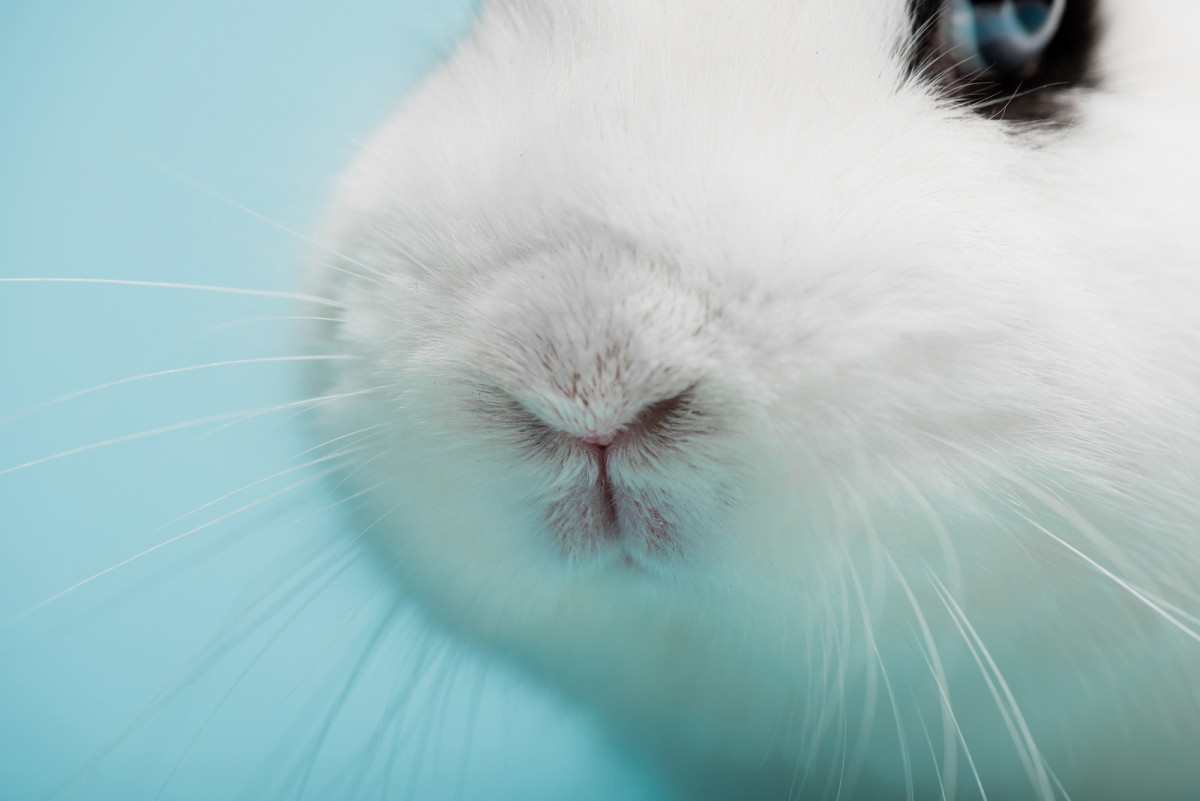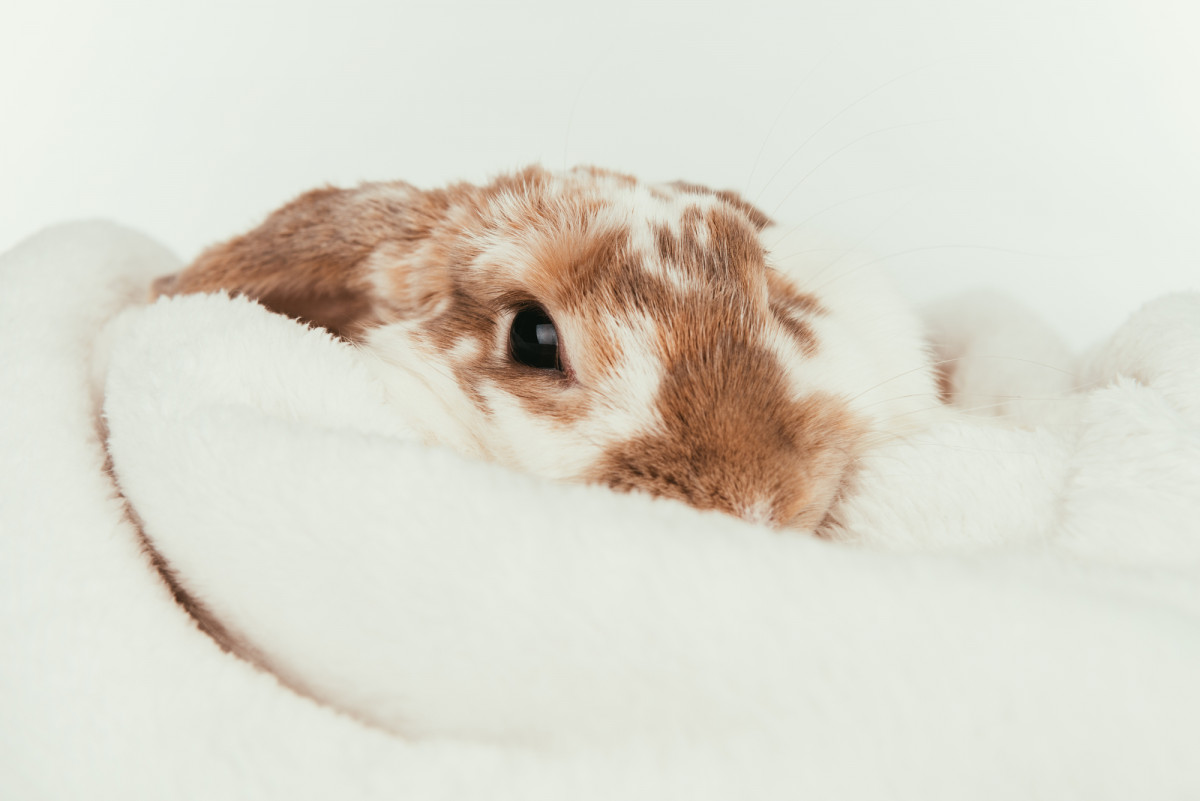In this article, we’ll go over how to choose the best food for your rabbit. While there are some basic guidelines you should always stick to, this article will help you find the perfect solution for your pet.
Pellets are a great option, but hay and fruit is also a good choice. You can even offer your rabbit both of these options! However, keep in mind that your rabbit’s digestive system is unique and they should be treated as such.

Pellets
You may be wondering how often you should feed your rabbits pellets. After all, rabbits are sensitive creatures. The sudden change in food can make them very ill. Fortunately, there are a number of things you can do to prevent your rabbit from developing any health problems.
First, you should always check the nutrition information of your rabbit’s pellets. Many pellets contain animal fats and are high in carbohydrates and sodium. You should also avoid feeding your rabbits pellets that are moldy or rancid.
As a general rule, an adult rabbit needs one quarter cup of pellets every day. Feeding rabbits under five pounds one-eighth cup a day is sufficient.
However, if your bunny is over ten pounds, you can give them one eighth cup or more of pellets per day. Moreover, you should feed pellets to growing rabbits only once or twice per day to avoid causing obesity in them.
For younger rabbits, hay plays a major role in their diet. Compared to other kinds of food, grass hay is gentler on their stomachs and provides more fibre.
Fresh grass hay is the best option, as it is higher in nutrients and is not hard on the digestive system. If you are feeding your rabbits pellets, be sure to mix them with hay, which is also high in protein.
Another thing you should know is that high-fiber treats like kale and chocolate can cause gastrointestinal upset. The high sugar content of these treats can lead to a buildup of potentially toxic bacteria in the rabbit’s digestive system.
Additionally, muesli mixes are not recommended for your rabbits because they contain high amounts of carbohydrates and no fiber. It is also not recommended to feed your rabbits any treats with high sugar content, such as muesli mixes.
Hay
Rabbit hay comes in many types. Some are inexpensive dusty yellow bits, while others are a more luxurious green. Common types of hay include Timothy, oat, and alfalfa.
Alfalfa is a good source of calcium and protein, but it should only be given sparingly to avoid gastrointestinal distress and obesity. So how often should you feed your rabbit?
Keeping a hay supply available is essential for a rabbit’s health. Rabbits are naturally curious animals that need to keep their curiosity satisfied. Without stimulation, they may become depressed and engage in destructive behaviors.
Likewise, a rabbit’s natural diet includes foraging. While it may not be as challenging as hunting in the wild, it can still keep it mentally healthy by stimulating the senses.
Rabbits’ teeth need constant stimulation to maintain proper function. Their teeth grow between two and three millimetres a week. If they are not constantly eating hay, they may suffer from malocclusions, a condition that can lead to mouth ulcers and a miserable rabbit.
Hay is vital to a rabbit’s digestion, so a steady supply of hay is essential. It’s also important to note that rabbits need a consistent supply of hay for the optimum health of the animal.
While fresh greens are essential, hay is a valuable supplement to your rabbit’s diet. If your rabbit grazes outdoors, hay would make up about 80% of its diet. But most people keep their rabbits indoors, so hay should make up about 80% of its diet.
If you want to supplement a hay-based diet, you can mix pellets and fresh greens, but always remember that hay is the most important part of a rabbit’s diet.

Fruit
Fresh fruit is good for rabbits. While most fruits are safe to eat, you should remove the pits and seeds. The fruit flesh is fine to feed your rabbit, but you should limit its consumption to just a teaspoon per two pounds of body weight.
Avoid giving fruit leaves and pits. The leaves and pits from tomatoes are poisonous, so only give them as occasional treats. Fruit leaves are low in sugar, so you can mix it with hay to make it more appealing for your rabbit.
The center of a pineapple is often discarded, but it contains an enzyme called bromelain that can help with diarrhea and hairballs. Bromelain also improves hairballs during molting.
Fresh pineapple centers contain higher levels of bromelain than frozen ones. When feeding fruit or vegetables, make sure to wash them thoroughly before feeding them to your rabbit. Avoid giving them a full pineapple at once, as they can cause digestive issues.
Besides fruits, rabbits also enjoy fresh vegetables. Arugula, for example, contains small amounts of fiber, water, and protein. However, don’t overfeed your rabbit with this treat because it may lead to high levels of calcium in its blood.
Additionally, don’t feed your rabbit any vegetables with seeds or pits, as they could lead to kidney and bladder problems. In addition to fruits and vegetables, your rabbit can also enjoy fresh plants.
If you are feeding your rabbit fresh fruits and vegetables, be sure to introduce them gradually, introducing them one at a time.
The introduction of new foods should be slow, as young rabbits are sensitive to it. You should also monitor the pooping habits of your rabbit, as it may not respond well to some food. However, if your rabbit is not reacting well, you can gradually add new foods to its diet.
Legume hay
There are many different types of hay for rabbits, including grass and legume. Legumes are an excellent choice because they are high in protein, fat, and fiber. They are also less dusty than grass hay, which is good for rabbits with dental problems.
Grass hay is made from a variety of grasses, including timothy. While grass hay contains a lower level of protein, energy, and calcium, it is still an excellent choice for your rabbit.
Legumes come in a variety of colors and textures. While many people believe that legumes are good for rabbits, there is no definitive research on their nutritional value.
Many vitamins and minerals that plants produce are lost in the process of harvest and storage. Fiber and silicates are both essential nutrients for rabbits, keeping the gut moving and wearing teeth properly. However, rabbit hay is not a high-quality source of protein and fat.
In addition to hay, rabbits need constant access to fresh green vegies. Fresh grass is best for your pet, but dried grass is the next best thing. Rabbits also like muesli, a mix of grains and cereals. Rabbits will eat only the pieces they like and not all of it, so don’t worry if you can’t provide them with fresh grass.
Another important consideration for rabbit food is the quantity. Rabbits are notoriously picky eaters, and it’s easy to get bored with the same type of hay.
To keep your rabbit interested in your pet’s diet, vary the types and sizes of hay. A large portion of their diet should consist of green foods. Greens provide their diet with additional vitamins and minerals and are great for healthy GI and kidney function.
Special occasion treats
If your bunny has an occasional sweet tooth, try giving him/her a sweet veggie or fruit. He/she will be happy to receive a little treat when he/she is happy. Also, if you want to reward your bunny for good behavior, give him/her a chew stick. A chew stick will help maintain the health of your rabbit’s teeth and will also be a fun treat for your bunny.
When giving treats to your rabbit, you should try to keep the ingredients fresh and non-perishable. You can use banana slices for the occasion, but be sure to leave out the peels, as they can upset the digestive system.
One or two slices should do the trick for each bunny. It’s also important to serve banana slices fresh; do not leave them on the counter for days. Alternatively, you can give your bunny slices of banana with hay. A good tip here is to only give two slices per day, as a single slice can cause digestive upset.
As a rule, only give your rabbit a small amount of treats on special occasions. This way, they can get used to the idea of eating human food. They are very prone to sweets, so don’t give them too much at once. However, if you have a rabbit that’s particularly picky, it’s a good idea to give it a little treat once in a while.
Although you can’t feed your rabbit human cookies, you can still give it biscuits on special occasions. A good biscuit is a healthy treat for bunnies. However, don’t forget to avoid giving them meat or other animal food, as they can cause illnesses. Also, avoid feeding your bunny meat, as rabbits are strictly herbivores. If you’re worried about giving your rabbit treats, give them Oxbow Rabbit Food.

Hi! I’m Lala, and I’m the owner of RabbitLala.com. When I’m not writing about rabbits, I enjoy traveling, trying out new recipes and enjoying my hobbies.
I’ve always loved animals, so it was no surprise when I started a website devoted to one specific animal: rabbits! Rabbits are amazing creatures, and there’s so much to learn about them.
I love traveling and trying out new recipes, and my hobbies include crocheting and painting.
